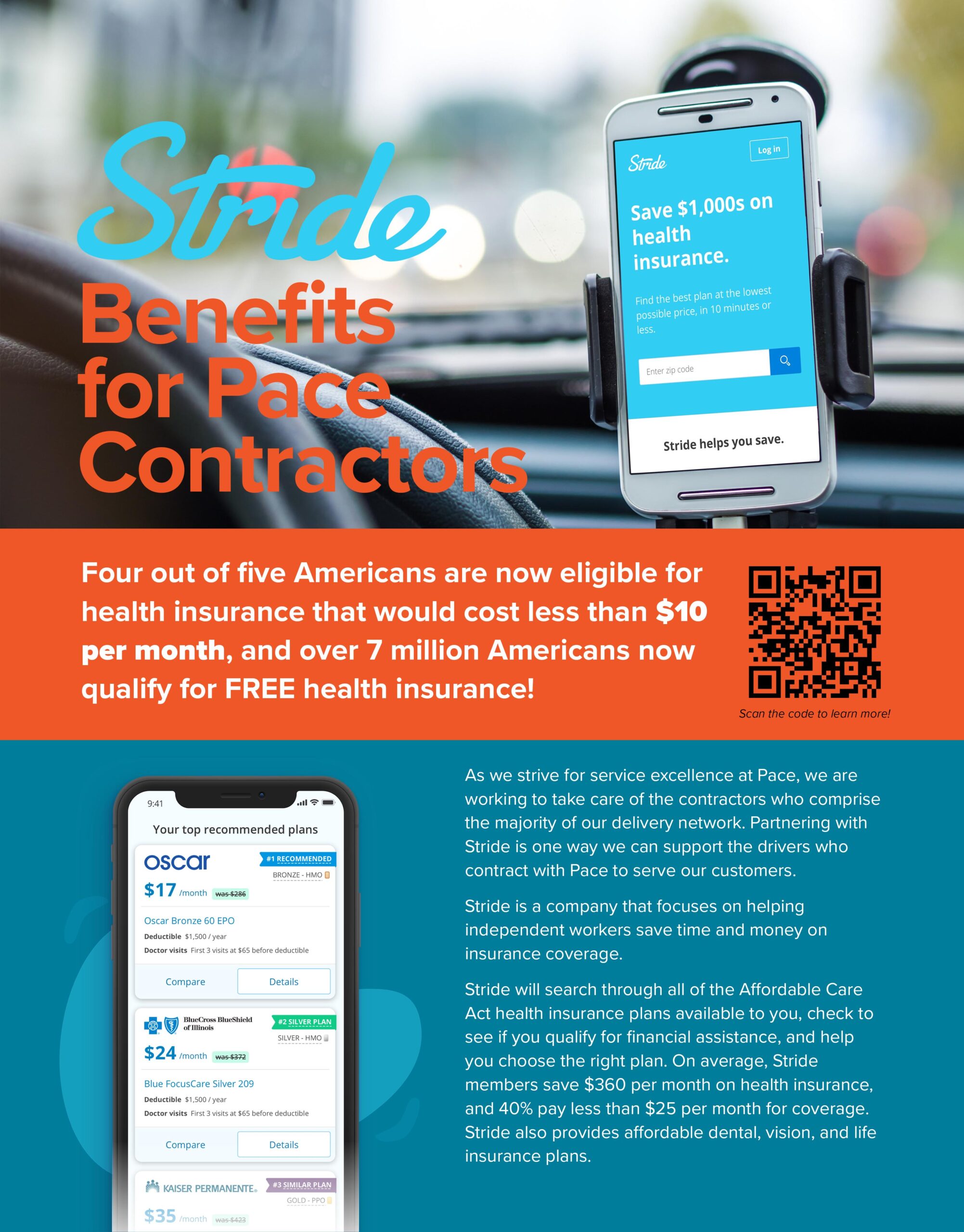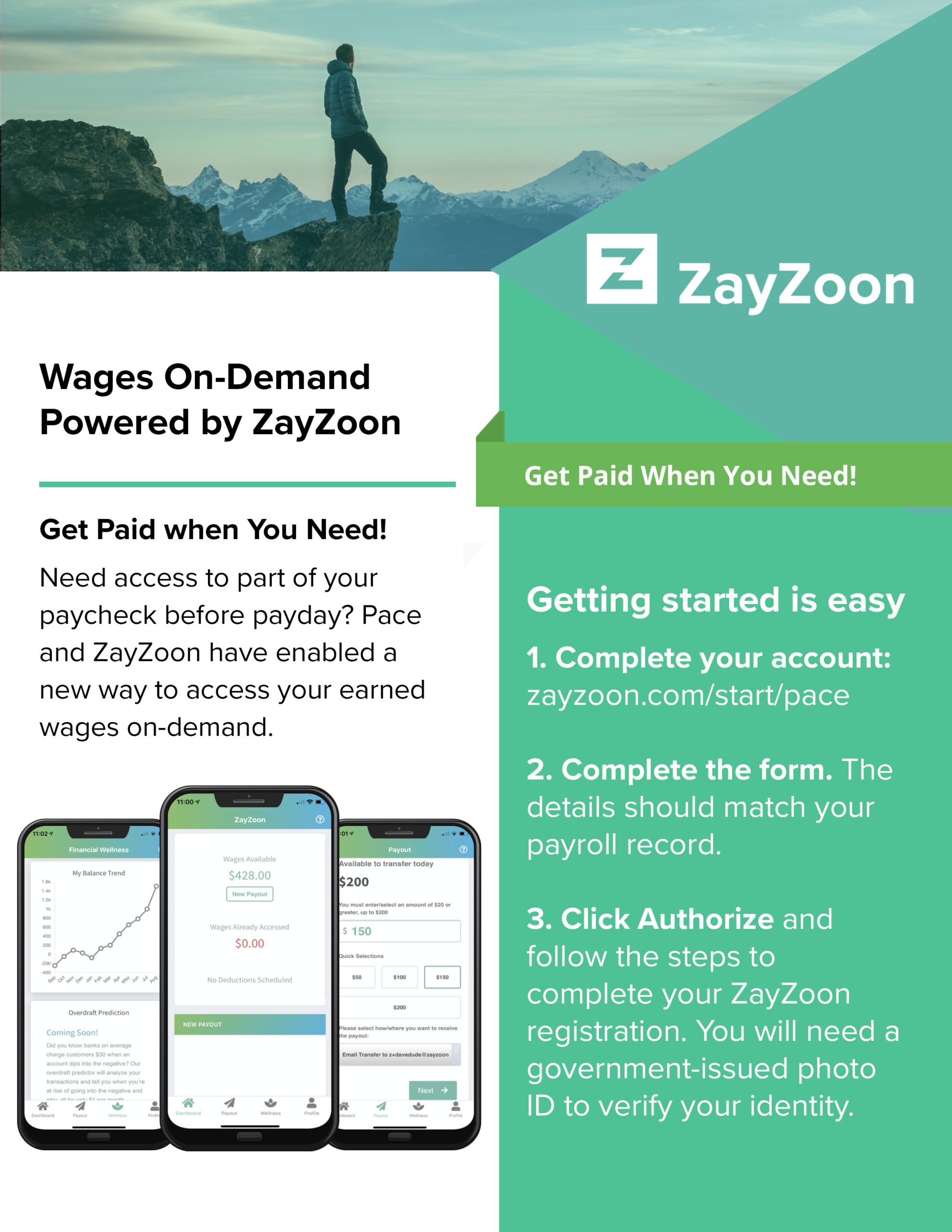
Investing in vehicles for your owner-operator business is important. Here’s what you need to know.
If you’ve been following Pace’s Drivers’ Blog, you already know that Pace is dedicated to helping you grow your owner-operator business. From Seven Secrets to Success for Owner-Operators to Which Structure is Right for Your Owner-Operator Business?, our series on Growing Your Own Business touches upon the many decisions you are required to make as a business owner that ultimately impact your bottom line. One of the most important decisions you’ll make is how to invest in your most essential equipment – your vehicle fleet. The logistics industry relies on many different types of vehicles, and you don’t necessarily need a big truck to get your business started. Many independent contractors have become successful using a car they already own and use daily! Of course, your market–the type of delivery routes and the freight you carry–along with your budget will help you determine which vehicle is best for you.
Determine the Types of Routes You Will Run and the Freight You Will Carry
Before you decide on the right vehicle for your new business, first consider the types of routes you want to run. Unless your goal is to be a long-haul trucker driving a tractor-trailer cross-country, you are probably looking at local, dedicated routes with a well-defined type of freight. You will also want to consider how long your routes might be, as this will determine how much freight you will load for each route. If you are delivering small items on shorter, more frequent routes (such as auto parts), you can rely on a smaller vehicle.
If you are running local routes but delivering larger freight, a sprinter van, cargo van, or straight truck may be the right fit for you. If your freight is large but not too heavy, a van could provide all the necessary functionality at a lower price than a straight truck. However, box trucks (or straight trucks) can provide an advantage if your freight is heavier and you need to use pallet jacks or forklifts to move it.
In addition to considering the types of routes you will run and the freight you will deliver, also weigh the facilities where you will load and unload your freight. Will you be unloading at a dock? Will you need a ramp? What height clearances will there be (both on the route and at the facility)? Will you need maneuverability to turn around?
Finally, engine type and fuel will be one of your biggest considerations. The most common options are diesel or gasoline, although battery-electric vehicles are on the rise, particularly for running shorter, more frequent routes where a charging station is close-by. Diesel engines are proven to be more fuel efficient (more so in automobiles than in truck engines) and to last longer, too. However, they are a more expensive investment upfront as well as more costly to refuel and maintain.
As you can see, there are several factors that help determine which vehicle type will suit your operation best. Be sure to do additional research and talk to other drivers and logistics professionals in your area who can help you make an informed decision.
Decide Whether to Buy or Lease Your Vehicle
Once you have decided which vehicle is right for you, the next step is to figure out the most cost-effective way to obtain it. While you can certainly go down to your local showroom and buy a new truck from the dealership, there are also more economical ways to get a good piece of equipment. Truck rental services routinely turn over their inventory when new models come out or new features are added. Check around to see which truck rental services are selling used inventory. With proper preventive maintenance, a 5-year-old truck can provide the same work output as a brand new truck at a fraction of the cost. You’ll want to learn what maintenance was done on the vehicle by its previous owner.
Sometimes dealers offer leasing arrangements that result in lower monthly payments, leaving more cash on hand to run your business. Leasing can also help you avoid some risks of ownership, such as costly repair or diminishing trade-in value over time. Leasing can also provide the ability to easily swap out vehicles if your needs or preferences change over time, enabling you to make more nimble business decisions.
Keep in mind that with either option you can deduct the associated costs for tax purposes. The cost of leasing can also help offset gains accrued through other business activities. Buying a vehicle will enable your business to deduct more expenses in the short term, but those benefits diminish over time due to depreciation. Many owner-operators choose to buy when they have enough startup capital, are already profitable, and find a good deal on a purchase. If you don’t have much capital, or need more cash on hand for monthly expenses or to reinvest in the business, then leasing might be a better option for you.
Weigh the Benefits of Paying With Cash or Financing Your Vehicle
Whether you buy new or used, you will also need to decide whether to pay cash or finance. Paying cash can take up a lot of money up front, but will end up costing less in the end. However, you need to be mindful of your startup capital and how best to allocate your available resources. Can you afford to pay that much cash up front and still meet your other financial obligations? Will having more cash to invest in other aspects of your operation be more important than saving money on interest?
Using leverage, otherwise known as financing, can let you keep more of you cash up front, because you only a pay a portion of the vehicle cost in the form of a down payment. While you will end up paying more for the vehicle over time due to interest on your loan, using leverage can sometimes help put you in a stronger position by leaving more cash available for re-investment in the business.
Imagine a scenario in which you can afford to pay cash for one truck, or you can afford the down payments on two trucks. You choose to buy both trucks and place them into service immediately. The two trucks together generate enough income to cover the loan payments and other expenses, plus some profit left over. If the two trucks together can make more than one truck alone, this extra value can outweigh the cost of interest and you come out ahead over time.
The previous situation was just one example of how using debt can be a strategic advantage. Debt can be a powerful tool, but it is not right for everyone in every situation. Be sure to talk with a financial advisor about the advantages, disadvantages, and risks associated with borrowing.
All in all, there are several factors to consider when choosing the best vehicles to grow your business. You’ll need to plan the types of routes you will run and the freight you will carry as well as whether it is best to own or lease your vehicle(s). You will weigh the value of paying cash or financing. Defining your goals, developing a plan, doing the research, and taking action steps will help you grow your business with the best vehicles to meet your goals.
Disclaimer: The contents of this posting are intended to convey general information only and not to provide legal, tax, accounting or other professional advice or opinions. The contents of this posting, and the posting and viewing of the information on this website, should not be construed as, and should not be relied upon for, legal, tax, accounting or other professional advice in any particular circumstance or fact situation. The information presented in this posting may not reflect the most current legal developments. No action should be taken in reliance on the information contained in this posting and Pace disclaims all liability in respect to actions taken or not taken based on any or all of the contents of this posting to the fullest extent permitted by law. Appropriate professionals should be contacted for advice on specific issues.









